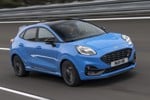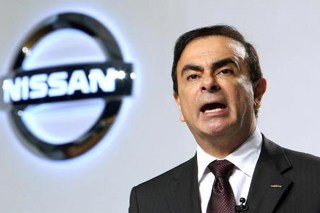By Jay Nagley
There can’t be many people left who expect their car to match the official combined cycle fuel test, although a few harassed sales people may have horror stories of customers believing in them, along with fairies at the bottom of the garden.
However in the past, the test was at least accurate in a relative sense: a car with a 10% better official figure than a competitor probably was better.
Nowadays, even that is no longer true. There are two reasons why this situation is getting steadily worse.
Firstly, the current test is wilfully unrealistic. The rates of acceleration are so slow that a modern small car can get through most of the test using no more than 10bhp. That means that one of the most important factors in the test is how much fuel the car uses at idle and at very low load, which obviously favours very small engines.
Secondly, the test has not changed for years, which means the manufacturers have learned how to optimise engines for it – and how the engine ECU can recognise it and optimise settings accordingly.
Nowadays, engines are increasingly designed to run on any fuel anywhere in the world, which means engines in Europe are massively over-specified for our high-grade petrol.
As an example: the Ford Mondeo Ecoboost 2.0 litre produces 237bhp and the same engine in the new Focus ST produces 247bhp. You might imagine that extra 10 bhp took about two weeks of tweaking to extract, but the truth is that it took a major redesign. The reason is that the Mondeo has a European-only specification engine, but the Focus ST is designed to produce its power when running on the barely-flammable stuff Americans call gasoline.
That means that an engine that recognises it is running in a nice warm laboratory at sea level on high-grade petrol can run a lot leaner than normal. That is not a comment specifically about Ford: having run a number of Ford long-termers, their cars appear to get within 20% of the official figures which is relatively good in today’s mad world.
No economy test shake-up on horizon
So what can be done? In the USA, when people started to complain about the real-world fuel consumption of their hybrids, the authorities tweaked the test within a couple of years because they recognised that, like Europe, the low-load test conditions tended to favour hybrids.
In Europe, people may complain when they discover that their plug-in hybrids are not actually getting the 130mpg-plus figures the ridiculously generous test cycle predicts, but it won’t do any good. The next test cycle is not due to be defined until 2014 with introduction around 2020.
While all these arguments are going on in the background, cars are becoming increasingly networked. Car manufacturers are already working on systems that will automatically alert the car behind if an obstacle is encountered and prime the second car to make an automatic emergency stop. Yet, with all this technology, we cannot reliably record the actual fuel consumption? Really?
Even the current humble trip computer can make a fair stab at it. Most drivers would not object to that information (made suitably anonymous of course) being uploaded wirelessly to an app or website to compile an official database of real-world fuel consumption by model. Most drivers we know are pretty annoyed about economy figures and would be happy to participate in anything that would give accurate information.
Some motoring magazines try to do that now, but the samples are small enough, and the methodology of self-reporting questionable enough, that car companies can safely stonewall the results.
If there was an accurate, objective record of real-world mpg, there would be a lot less incentive for manufacturers to play the system. It would not even be necessary to make the technology compulsory in every car. If cars with trip computers had to pass on their data, market forces would soon ensure that every car was fitted with a trip computer, as buyers would simply avoid cars which had no independent fuel consumption data.
It might not be perfect, but the current situation is like the productivity claims of the old Soviet Union. Every year, manufacturers report that cars are getting 4-5% more economical. Right now, the real figure could be 5% or it could be zero – we have no way of knowing. With people buying cars because they read about the fantastic official fuel consumption, and then discovering their mpg has actually gone down, it is time to sort out this problem.
















Login to comment
Comments
No comments have been made yet.